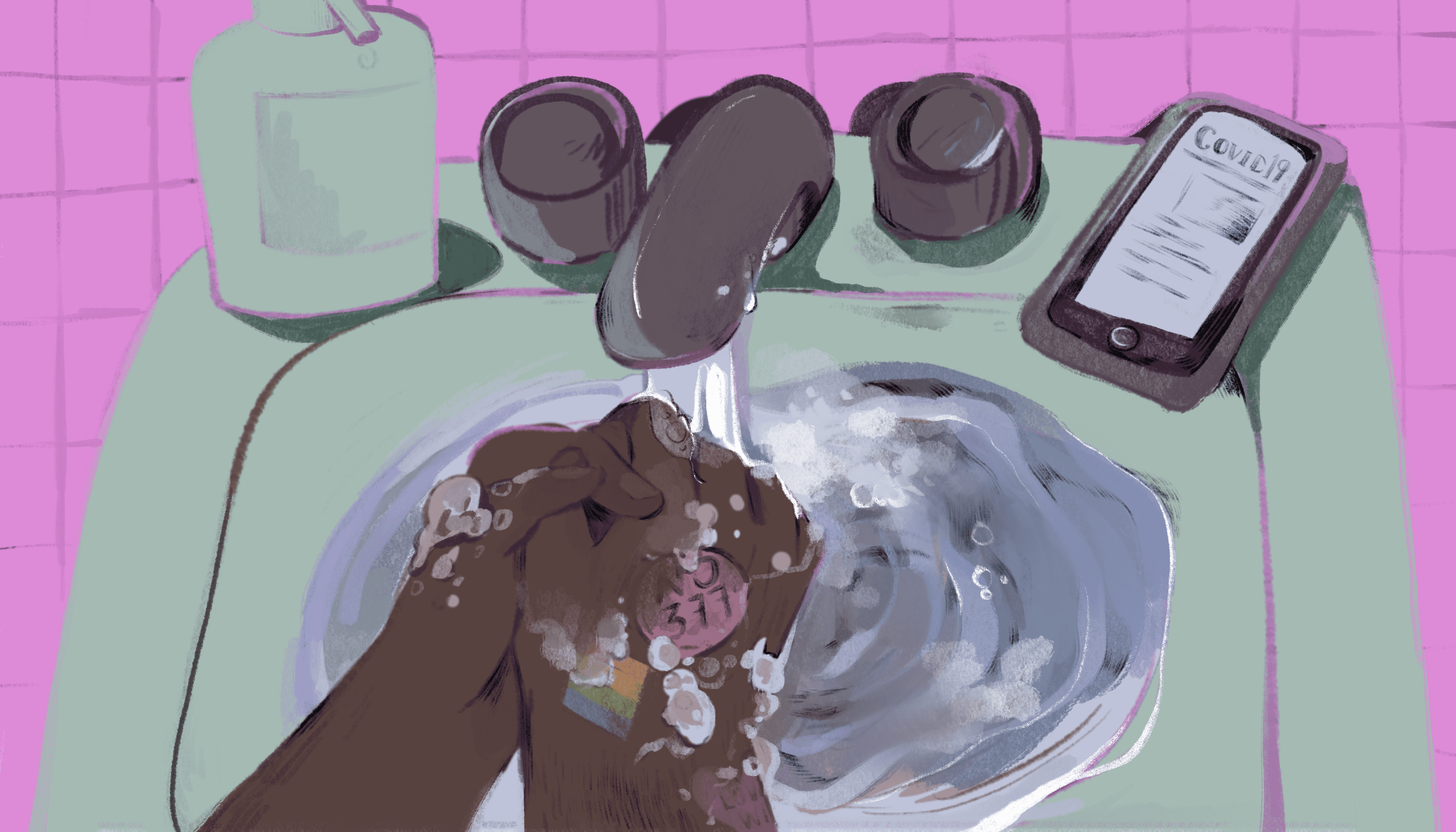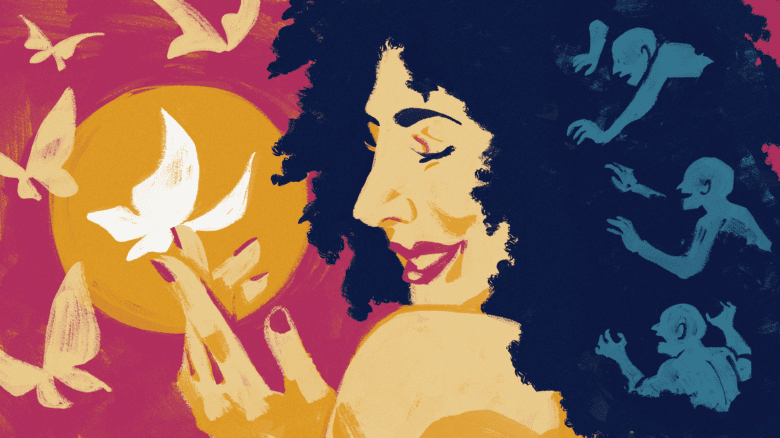When Indian Prime Minister Narendra Modi announced a three-week long lockdown to address the outbreak of COVID-19 in the country, I braced myself for another gruelling 21 days.
I had already been in quarantine for nearly three weeks prior to the Mar. 23 announcement. I went from being a journalist reporting on massive daily protests against the controversial Citizenship (Amendment) Act—which grants citizenship to refugees and immigrants from Pakistan, Bangladesh and Afghanistan on the basis of religion, but excludes Muslims—to being stuck within the four walls of my family home in New Delhi.
I went from hearing multiple voices shout protest slogans in different languages to hearing hateful language—a language I never want to learn—from people I’m supposed to love. With Modi’s announcement, one thing was certain: I was doomed to spend more weeks with my toxic and complicated family.
In the first week of March, when I initially started physical distancing, I quickly realized that every sign of rainbow in my house needed to be concealed: My badge that reads “No. 377” to signify my rejection of India’s colonial-era law, Section 377, which criminalizes “unnatural sex” and is used to prosecute homosexuals; as well as my collection of rainbow stickers and posters announcing Pride parades. It all had to be hidden, like rats in a hole. No trace of rainbows could be left behind. In the home of my staunch Hindu-nationalist family, I couldn’t leave any evidence of a seemingly perfect child who follows a colourful lifestyle.

India’s current government is led by the Hindu nationalist Bharatiya Janata Party, known for its Islamophobia and declarations that it will “show Muslims their place.” Along with the Citizenship (Amendment) Act, the ruling government has seen active protests against the National Registry of Citizens (NRC), an exercise yet to be carried out all over India that demands birth certificates as proof of citizenship.
The NRC is considered anti-Muslim because several Muslim families entered India during the partition of 1947 and the Bangladesh Liberation War of 1971, and so many do not have original identification documents or birth certificates. The devastation caused by the riots in India has also left many people (again, mostly Muslims) without their birth certificates.
“I went from hearing multiple voices shout protest slogans in different languages to hearing hateful language—a language I never want to learn—from people I’m supposed to love.”
Queer and transphobic policies are also prevalent in the country. In 2019, the NRC excluded over 2,000 trans people from the final version of the registry in Assam. Like many other queer-identified people, trans folks are often disowned by their families and don’t have access to their original documentation. Though the Indian Parliament passed the Transgender Persons (Protection of Rights) Bill in November 2019 to tackle discrimination against trans people, it has been criticized by many trans activists because it requires medical determination for a person to legally transition.
In public and personal spaces, being queer is still considered taboo in India. Queer-friendly spaces are often for the elite and exclude people from underprivileged backgrounds—and most of these spaces are tainted by misogyny. Sadly, for many of us, home doesn’t offer any refuge either.
During an argument at the dinner table over the ruling government’s policies one day, my father took a queerphobic turn. “That friend of yours, that boy from your class. You know what I thought when I met him?” He bellowed. “I thought he was gay.”
He was talking about my best friend who he met a year ago at the local market. I sat there, baffled and disgusted by his ignorance. I wondered what gave it away. Was it the way my friend spoke? Was it his gestures?
“And is it wrong for him to be gay?” I asked quietly.
My father sighed and shook his head. His hands fumbled through his jeans to find a lighter for his cigarette.

It’s unsettling not to feel “at home” in my own home. The last place where I felt any kind of belonging was at a protest, surrounded by thousands of strangers. During the COVID-19 lockdown, these feelings of alienation are amplified by being trapped in a household with opposing views—worsened by being unable to find anything that I’m particularly good at to use as an outlet.
Physical distancing hasn’t been the best for my body image or eating disorder. It’s hard to be around food. My stomach feels at once repulsed and tempted at the sight of it. And, as my isolation progressed, anger engulfed me. I was angry with my family for blindly favouring the current regime, I was angry with my friends for not reaching out enough. Every day became a monotonous routine of waking up in the afternoon, watching movies while eating fatty food, scrolling mindlessly on my phone and repeating the cycle of self-loathing.
Then, I stumbled upon workout videos on YouTube. On an impulse, I picked up my jump rope and jumped for 10 minutes, completely forgetting about my ankle and tendon injuries. My body felt sore, but my mind felt relieved—the heaviness in my chest became lighter. After my spontaneous workout, I put my ankles in an ice bath and stared at the cracked ceiling of our bathroom, thinking, “I could get used to this feeling.”
I have always struggled with the concept of home. My history is made up of stories about forced immigration rooted in socioeconomic differences. I don’t have a hometown but I know I have my body—the only home I have until the day that I die. A body that’s been abused, berated and objectified. A body that experienced bullying, from others and from myself.
“ I don’t have a hometown but I know I have my body—the only home I have until the day that I die.”
As Indians, we grow up with ingrained notions of Euro-centric beauty, a standard that prefers smooth and pale skin. We are made to feel inferior, systematically conditioned to hate our brown skin and hairy bodies. I know this because I have been self-conscious about my body hair since I was 10 years old, and not much has changed a decade later. But after I began exercising, something clicked. I reflected and questioned many things: My ideals of beauty, my family dynamic and my own privilege. I realized that self-love involves learning and unlearning.
I still check the scale regularly; I still feel the cellulite around my thighs and the stretch marks which cover my lower back, but I don’t hate them anymore. I welcome them. They’ve been a part of me for years, and they deserve to be loved and nourished.
During isolation, I found the freedom to unapologetically love myself.

On Apr. 14, Prime Minister Modi announced that the lockdown in India will be extended until May 3.
I wonder what the world will feel like when I finally get to step out of my house. Will the Indian summer feel like a hundred needles stabbing my skin because I have been indoors for too long? Will the air turn to smoke when the cars return to the roads? Will my ears flinch when they hear the sounds of traffic and the beeping of the train after so long? My feet have grown used to the blemished tiles of my home; they’ve memorized what every step feels like when I leave to walk my dogs or to buy essential goods. When the lockdown ends, will my feet feel uneasy or guilty when they step on grass? I push aside these thoughts, but I ache for a hint of normalcy in what feels like a post-apocalyptic world.
A common protest chant in India is azaadi, Urdu for “freedom.” It’s a slogan sometimes heard at the protests I covered, and hints at sedition and insurgency. Now, inside the four walls of my conservative household, it’s a whisper tucked in the back of my throat. This simple slogan carries a lot of weight, especially now, when I realize that at home my very existence is a site of protest.
“I ache for a hint of normalcy in what feels like a post-apocalyptic world.”
I dream of a day when humans no longer hate. I dream of a day when I can hold my lover’s hand in public and saunter down the narrow lanes of Old Delhi wearing all the colours of the rainbow as our fingers trace the history inked on our hands.
My queerness refuses to turn to poetry, it refuses to trickle down to romanticized rhymes—it cannot turn to perfectly metered verses. My queerness refuses to turn into a metaphor. It remains inside of me, constantly telling me: Azaadi, azaadi, azaadi.
Inside my wallet, an unused rainbow sticker, tucked in between crumpled notes, is my small version of freedom, for now.

 Why you can trust Xtra
Why you can trust Xtra


